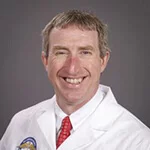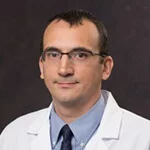What is an upper endoscopy?
Upper endoscopy, also known as an upper GI endoscopy, esophagogastroduodenoscopy, EGD and panendoscopy, is a procedure that enables your physician to examine the lining of the upper part of your gastrointestinal tract, i.e., the esophagus or swallowing tube, stomach, and duodenum or first portion of the small intestine using a thin flexible tube with its own lens and light source.
What preparation is required?
For the best and safest examination, the stomach must be completely empty. You should have nothing to eat or drink, including water, for approximately 6 hours before the examination. Your doctor will be more specific about the time to begin fasting, depending on the time of day that your test is scheduled.
It is best to inform your doctor of your current medications including over-the-counter pain relievers, vitamins, and herbal supplements. It is also important to inform your physician of any medication or latex allergies. Also, you should notify your physician if you are taking any blood thinners such as Aspirin, Coumadin, Plavix, Aggrenox, Ticlid, or Persantine.
Possible medication adjustments
Before the test, be sure to discuss with the physician whether you should adjust any of your usual medications before the procedure, any drug allergies you may have, and whether you have any other major diseases such as a heart or lung condition that might require special attention during the procedure.
Arrangements to get home after the test
If you are sedated, you will need to arrange to have someone accompany you to the facility, be available at the facility and drive you home after the procedure. Because sedatives temporarily affect your judgment and reflexes, you will not be allowed to drive or operate heavy equipment for the remainder of the day.
What can be expected during an upper endoscopy?
Your physician will review with you why upper endoscopy is being performed, whether any alternative tests are available and possible complications from the procedure. Practices may vary among physicians, but you may have your throat sprayed with a local anesthetic before the test begins and be given medication through a vein to help you relax during the test. While you are in a comfortable position on your left side, the endoscope is passed through the mouth and then into the esophagus, stomach and duodenum. The endoscope does not interfere with your breathing during the test. Most patients consider the test to be only slightly uncomfortable and many patients fall asleep during the procedure.
What happens after an upper endoscopy?
After the test you will be monitored in the endoscopy recovery area until most of the effects of the medication have worn off. Your throat may be sore for a while. You may also feel bloated right after the procedure because of the air introduced into your stomach during the test. You will be able to resume your diet after you leave the procedure area unless you are instructed otherwise.
In most circumstances your physician will inform you of your test results on the day of the procedure; however, the results of any biopsies or cytology samples taken may take up to 7 to 10 days.
What are the possible complications of an upper endoscopy?
Endoscopy is generally safe. Complications can occur but are rare when the test is performed by physicians with specialized training and experience in this procedure. Bleeding may occur from a biopsy site or where a polyp was removed. It is usually minimal and rarely requires blood transfusions or surgery. Localized irritation of the vein where the medication was injected may cause a tender lump lasting for several weeks, but this will go away eventually. Applying heat packs or hot moist towels may help relieve discomfort. Other potential risks include a reaction to the sedatives used and complications from heart or lung diseases. Major complications such as perforation, a tear that might require surgery for repair, are fortunately very uncommon.
It is important for you to recognize early signs of any possible complication. After the test if you develop a fever, have trouble swallowing, or if you have increasing throat, chest, or abdominal pain, inform your physician immediately.













